Sex-for-jobs scandal hits factories

SHARE THIS PAGE!
An international labour rights monitoring organisation based in the United States is investigating cases of sexual abuse and harassment in Lesotho’s clothing and textile industry.
The practice is said to be rife in the sector, which at its peak some years ago used to employ up to 45,000 employees, mostly women. The number has since declined by more than half, although the industry is still the largest employer after government.
The Worker Rights Consortium (WRC), which investigates working conditions in factories around the globe, has confirmed probing Lesotho’s garment sector. The United States is the largest buyer of the country’s clothing and textile products.
A field representative for WRC, Sethelile Ntlhakana, says sexual harassment and abuse is common in the local textile industry.
She noted that unequal power dynamics and gender inequality result in a culture of acceptance of this type of abuse.
Ntlhakana told theReporter that women workers who make up the majority of the workforce at local factories are particularly vulnerable to gender-based violence and harassment (GBVH).
They are afraid to report such abuse due to a fear of losing their jobs, she said.
“Such allegations need to be investigated with urgency and confidentiality, and action must be taken to hold perpetrators to account, to change the culture of acceptance and break the cycle of abuse,” she noted.
She indicated that they had also launched an investigation into allegations of GBVH at Quantum Apparel Pty (Ltd), a local company based at Ha Thetsane in Maseru. This after WRC received reports from workers’ unions, the United Textiles Employees (UNITE).
Since then, Ntlhakana indicated, their focus has shifted towards working with worker representatives, in consultation with the Ministry of Labour, to secure the reinstatement of the affected workers. The parties would now also investigate claims of sexual abuse and harassment across the entire industry.
A 24-year old female worker, who requested anonymity, claimed she was hired at Quantum Apparel Pty (Ltd) by a Sri Lankan line manager (name supplied) in November 2024.
According to her, the manager initially acted professionally but later began pursuing her romantically under the pretext of work-related contact.
“He asked for my number pretending it was for work purposes. Later, he started asking me out. When I refused, he began to treat me differently. I was constantly moved from one department to another without explanation, and given irregular shifts, often involving overtime, which I believe was meant to isolate me,” she claimed.
The woman recalled how the manager would call her during off hours, telling her that he loved her and wanted to be with her.
“When I rejected him, he became moody and difficult at work,” she said. She was eventually dismissed on June 23 this year after eating lunch outside the factory, which is reportedly prohibited. She believes this was just an excuse to fire her.
“I believe he only hired me because he was sexually interested in me. I was too scared to report it earlier because I needed the job,” she added.
A shop steward, ‘Matokelo Selebalo accused Quantum management of targeting only young women for employment.
Selebalo described a culture where young women are quickly coerced into relationships with their superiors, which sometimes lead to unwanted pregnancies.
Some managers have multiple relationships at once, and when the women find out, they end up fighting among themselves, which is very degrading, she said.
UNITE says it is working with WRC to fight GBVH in the country.
It condemned what it describes as ‘unchecked escalation’ of sexual exploitation in Lesotho’s garment industry, pointing to a culture of impunity.
The union insists that what’s happening at Quantum Apparel is not an isolated incident but rather part of a broader systemic problem in the local garment industry. The factory is owned by Duty Free Sourcing Inc., a global supplier that took over from the former Middle Sky and Sun Textiles in February 2025.
With 80 percent of workers in the sector being women, it says it is unacceptable for the largest private-sector employer in the country to remain mired in such serious allegations without action.
Ntima Makhetha, a manager at UNITE’s Thetsane division, accused government of neglecting the plight of vulnerable workers.
“We are dealing with a deep-rooted culture of exploitation. The government needs to act swiftly not just to protect these women, but to send a clear message that abuse will not be tolerated in Lesotho,” Makhetha said.
“The lives and dignity of Basotho women should not be the price we pay for jobs,” he stated, adding that numerous cases of sexual assault had been reported to the nearby Thetsane police station. However, police at Ha Thetsane denied cognisance of such cases.
Makhetha also recounted incidents where some workers laid off at another factory, were transferred to Quantum Apparel only to face the same patterns of abuse.
“They thought people were exaggerating when they heard the stories, but once they started working there, they realised it was true,” he alleged.
According to Makhetha, the harassment ranges from inappropriate behaviour to outright sexual coercion.
“There was even a case involving an intern. After she complained of being sexually assaulted, the manager in question claimed she was the one pursuing him, and he had rejected her,” he added.
The secretary general of UNITE, Solong Senohe told theReporter that it was difficult to address GBVH as victims rarely report for fear of being fired.
Senohe said the union however, believes gender-based violence and sexual harassment are common in the textile industry but cannot be identified easily.
They had informed Lesotho National Development Corporation (LNDC) and the Ministry of Labour and Employment about the allegations of sexual abuse and harassment at Quantum, he said.
He added that it is difficult for the union to encourage workers to report such matters in the absence of an instrument to protect them.
“There should be an entity encouraged by the buyers because they are the ones with the most control as they are able to stop orders whenever they want,” Senohe pointed out.
He added that unless an entity is introduced GBV and sexual assaults is something that will never be beat.
Quantum human resource officer, Gladys Mokone, said trade union representative and LNDC officials had come to address the sexual harassment claims.
Mokone said the investigations came to naught as no victims or witnesses came forward with tangible evidence.
“We tried to find victims or witnesses, but they are unable to give us any proof of sexual abuse or harassment,” she told theReporter in an interview yesterday.
“Such issues are very difficult to solve because alleged perpetrators deny the claims against them. What we need is proof,” she stressed, adding that the fingered Sri Lankan has since been fired from work.
The public relations officer of the Ministry of Labour and Employment, Maqalika Matsepe, confirmed that they were called to investigate allegations of GBVH at Quantum six months ago following reports from UNITE.
In 2019, WRC exposed systemic gender-based violence and harassment at Nien Hsing in Maseru, a major global producer of denim clothing, resulting in a set of landmark agreements being negotiated among leading apparel brands, a coalition of labour unions representing workers at the factories and women’s rights advocates, and the firm.
These binding agreements reportedly created an unprecedented mechanism to enable workers to bring complaints of GBVH to independent outside investigators with the power to punish perpetrators.
The agreements established Workers’ Rights Watch, an independent investigative organisation, which has the responsibility to probe allegations of abuse at two other factories owned by Nien Hsing in Lesotho and come up with specific remedies including termination of employment for violations of the code of conduct.
The agreements also established a toll-free information line run by Workers’ Rights Watch so that workers can learn more about the programme and safely report incidents of GBVH without fear of retaliation.
The parties also pledged to come up with an extensive education and awareness programme implemented by the Lesotho unions and NGOs.
The agreements include a robust definition of gender-based violence and harassment in the world of work, adapted from the ILO Convention 190 on Violence and Harassment. They also recognise the crucial role of workers’ ability to act collectively to protect their rights in changing gender-based power inequality, the agreement also protects associational rights by prohibiting any form of anti-union retaliation or interference with workers’ exercise of their right to organise.
Ntlhakana also confirmed that the consortium had in 2019 investigated a number of complaints by Nien Hsing factory and came up with several agreements to curb GBVH.
She said the organisation worked with various stakeholders including by local unions and non-governmental organisation (NGOs) to remedy violations identified at this firm.
The parties also seek to negotiate agreements aimed at combating gender-based violence and harassment at the factories.
The WRC conducts independent, worker-centred investigations; issues public reports on factories producing for major brands; and aids workers at these factories in their efforts to end violations. It also seeks to help employees to defend their workplace rights through engagement with factory management and the brands and retailers sourcing garments from these factories.
According to the consortium, it also investigates, conduct interviews with workers and worker representatives and factor managers, and reviews documents and information by factories and other relevant stakeholders and reach findings through an analysis of national law and international standards.
Ntlhakana said they work with unions, workers, factory managers, as well as brands and retailers to address identified violations.
Ntlhakana believes establishment of such engagement at Quantum and other factories could go a long way in curbing the sexual abuse and harassment of female employees, and give them a platform to report cases of violation or when their rights have been trampled upon.
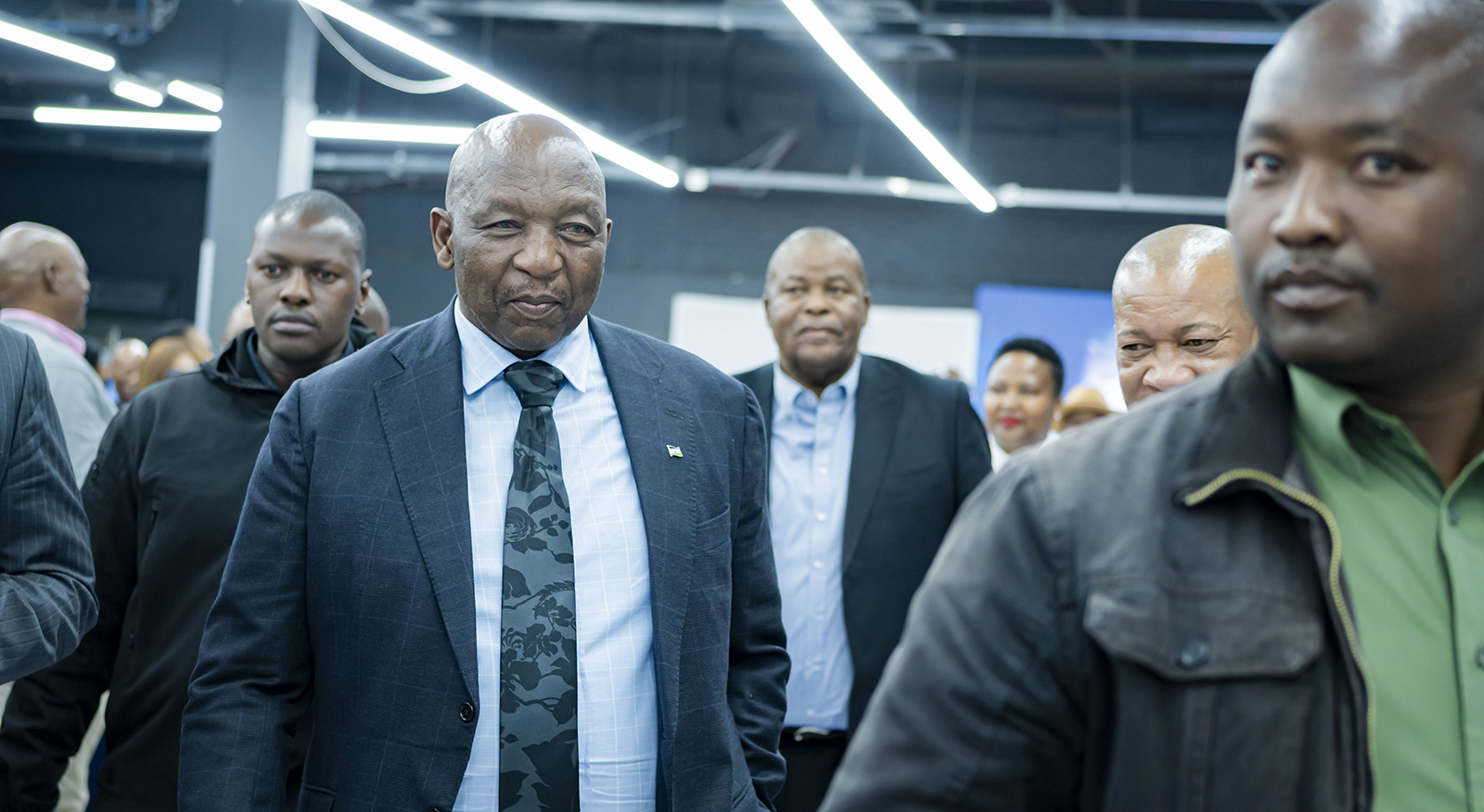

CBL honoured for ethical procurement
10 days ago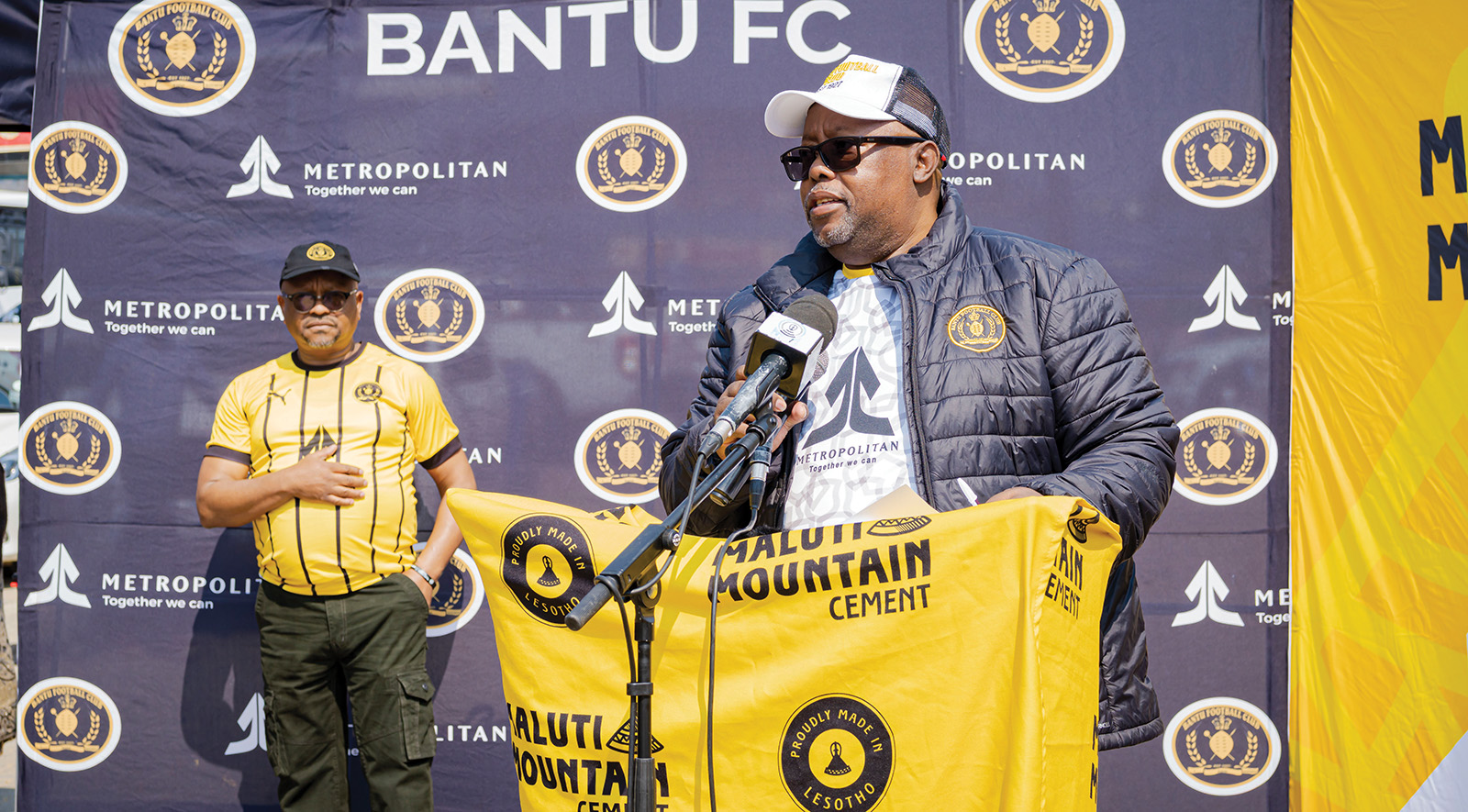
Bantu, MMC launch micro-loan fund in Mafeteng
10 days ago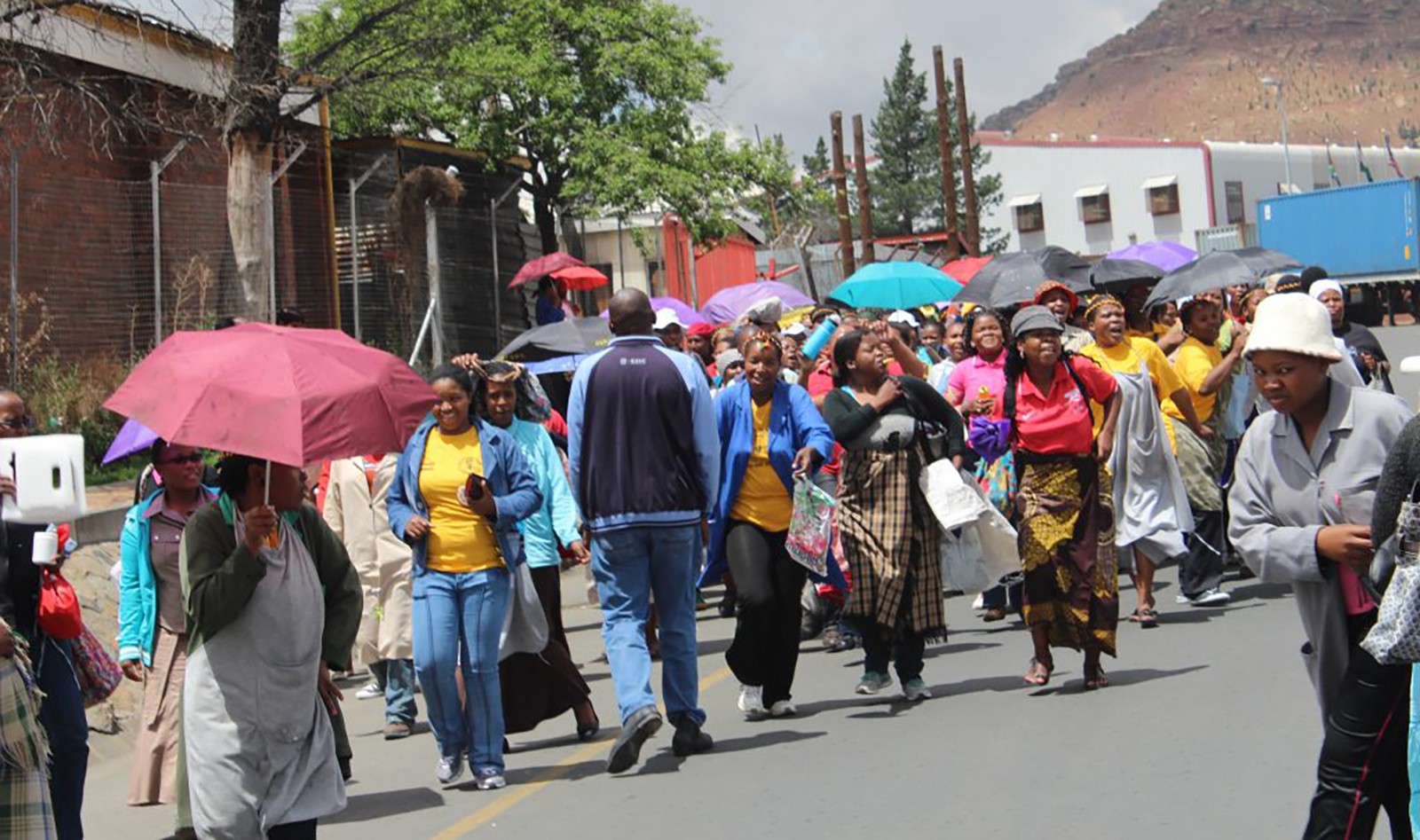
Workers testify against unfair dismissal
10 days ago
Sex-for-jobs scandal hits factories
10 days ago
High Court to rule on Lipholo bail bid
13 days ago
Metolong community cries over abandoned clinic
13 days ago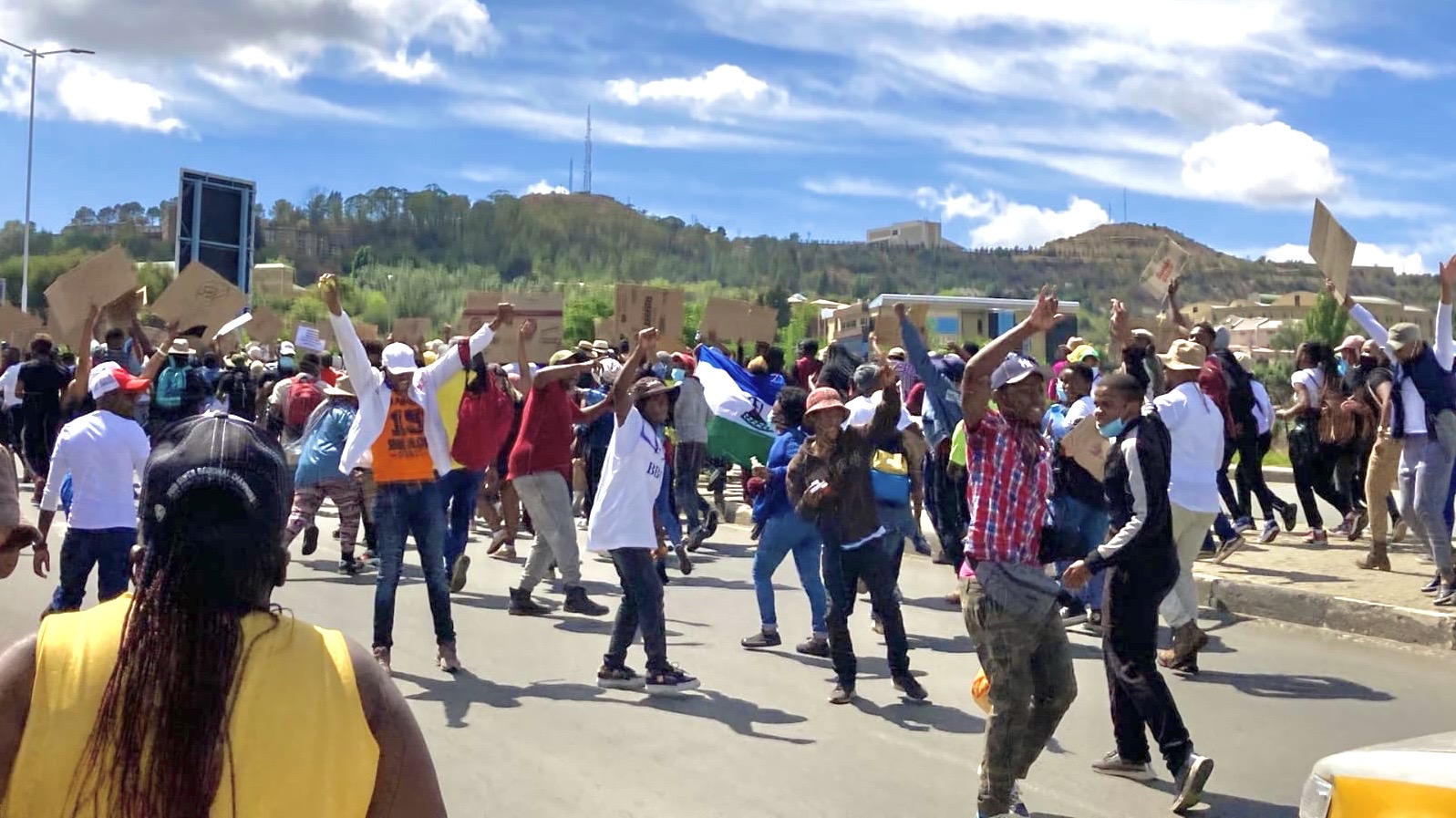
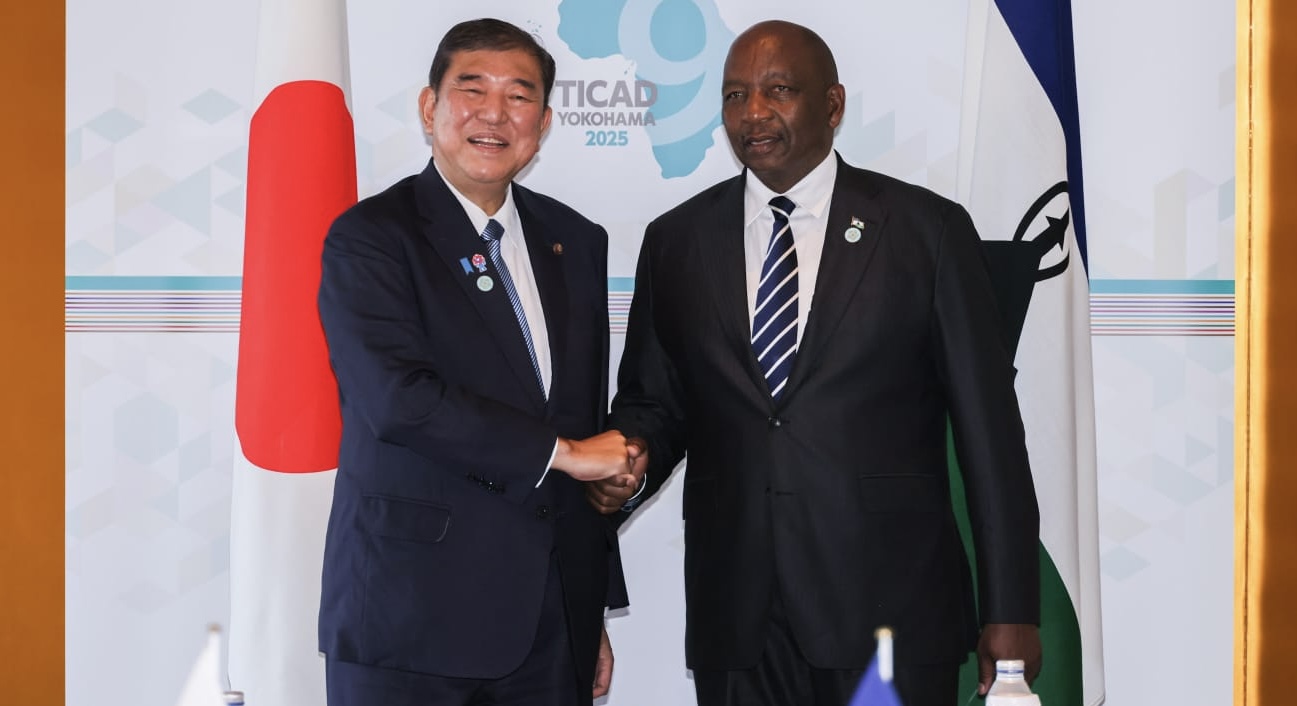
Lesotho, Japan to strengthen bilateral relations
16 days ago
US restores HIV lifeline to Lesotho
18 days ago